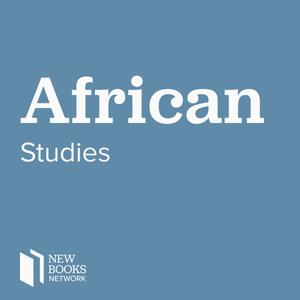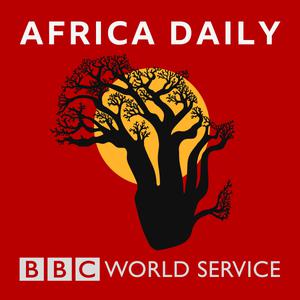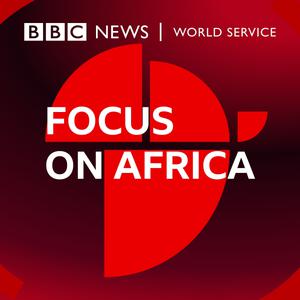
New Books in African Studies
Interviews with Scholars of Africa about their New Books
- 43 minutes 33 secondsChelsea Berry, "Poisoned Relations: Healing, Power, and Contested Knowledge in the Atlantic World" (U Pennsylvania Press, 2024)
By the time of the opening of the Atlantic world in the fifteenth century, Europeans and Atlantic Africans had developed significantly different cultural idioms for and understandings of poison. Europeans considered poison a gendered “weapon of the weak” while Africans viewed it as an abuse by the powerful. Though distinct, both idioms centered on fraught power relationships. When translated to the slave societies of the Americas, these understandings sometimes clashed in conflicting interpretations of alleged poisoning events.
In Poisoned Relations: Healing, Power, and Contested Knowledge in the Atlantic World (University of Pennsylvania Press, 2024), Dr. Chelsea Berry illuminates the competing understandings of poison and power in the Atlantic World. Poison was connected to central concerns of life: to the well-being in this world for oneself and one’s relatives; to the morality and use of power; and to the fraught relationships that bound people together. The social and relational nature of ideas about poison meant that the power struggles that emerged in poison cases, while unfolding in the extreme context of slavery, were not solely between enslavers and the enslaved—they also involved social conflict within enslaved communities.
Poisoned Relations examines more than five hundred investigations and trials in four colonial contexts—British Virginia, French Martinique, Portuguese Bahia, and the Dutch Guianas—bringing a groundbreaking application of historical linguistics to bear on the study of the African diaspora in the Americas. Illuminating competing understandings of poison and power in this way, Dr. Berry opens new avenues of evidence through which to navigate the violence of colonial archival silences.
This interview was conducted by Dr. Miranda Melcher whose new book focuses on post-conflict military integration, understanding treaty negotiation and implementation in civil war contexts, with qualitative analysis of the Angolan and Mozambican civil wars.
Learn more about your ad choices. Visit megaphone.fm/adchoices
Support our show by becoming a premium member! https://newbooksnetwork.supportingcast.fm/african-studies
20 December 2024, 9:00 am - 1 hour 6 minutesAnne K. Bang, "Zanzibari Muslim Moderns: Islamic Paths to Progress in the Interwar Period" (Oxford UP, 2024)
Zanzibari Muslim Moderns: Islamic Paths to Progress in the Interwar Period (Oxford UP, 2024) is a historical study of Zanzibar during the interwar years. This was a period marked by rapid intellectual and social change in the Muslim world, when ideas of Islamic progress and development were hotly debated. How did this process play out in Zanzibar?
Based on a wide range of sources—Islamic and colonial, private and public—Anne K. Bang examines how these concepts were received and promoted on the island, arguing that a new ideal emerged in its intellectual arena: the Muslim modern. Tracing the influences that shaped the outlook of this new figure, Bang draws lines to Islamic modernists in the Middle East, to local Sufi teachings, and to the recently founded state of Saudi Arabia. She presents the activities of the Muslim modern in the colonial employment system, as a contributor to international debates, as an activist in the community, and more. She also explores the formation of numerous faith-based associations during this period, as well as the views of the Muslim modern on everything from funerary practices and Mawlid celebrations to reading habits. A recurring theme throughout is the question with which many Muslim moderns were confronted: who should implement development? And for whom?
Anne K. Bang is Professor of African Islamic History at the University of Bergen. She has published widely on Islamic intellectual exchanges in the Indian Ocean, and particularly on East Africa. She has also led several projects to bring the scriptural sources of this history to wider attention.
Ahmed Y. AlMaazmi is an Emirati historian who focuses on the intersection of occultism and imperialism in the Indian Ocean world. After completing his studies in cultural anthropology at Rutgers University as a Fulbright fellow, he pursued a PhD in Near Eastern Studies at Princeton University. His dissertation, An Enchanted Sea: Occultism and Imperialism in the Early Modern Indian Ocean World, 1450-1750, examines the connected histories of occult sciences and empire-building across Arabia, East Africa, and South Asia, told through intellectual projects that accompanied the rise of the Omani Yaʿrubī Empire and its diasporic communities. His recent work includes the article, “I Authored This Book in the Absence of My Slave: Enslaved East Africans and the Production of Occult Knowledge across the Omani Empire,” published in Monsoon Journal.
Learn more about your ad choices. Visit megaphone.fm/adchoices
Support our show by becoming a premium member! https://newbooksnetwork.supportingcast.fm/african-studies
18 December 2024, 9:00 am - 1 hour 3 minutesLeila Ullrich, "Victims and the Labour of Justice at the International Criminal Court: The Blame Cascade" (Oxford UP, 2024)
Victim participation at the International Criminal Court (ICC) has routinely been viewed as an empty promise of justice or mere spectacle for audiences in the Global North, providing little benefit for victims. Why, then, do people in Kenya and Uganda engage in justice processes that offer so little, so late? How and why do they become the court’s victims and intermediaries, and what impact do these labels have on them?
Victims and the Labour of Justice at the International Criminal Court: The Blame Cascade (Oxford UP, 2024) offers a response to these poignant questions, demonstrating that the notion of ‘justice for victims’ is not merely symbolic, expressive, or instrumental. On the contrary — as Leila Ullrich argues — the ICC’s methods of victim engagement are productive, reproducing the Court as a relevant institution and transforming victims in the Global South into highly gendered and racialized labouring subjects. Challenging the Court’s interplay with global capitalist relationships, the book makes visible the hidden labour of justice, and how it lures, disciplines, and blames both victims and victims’ advocates. Drawing on critical theory, criminological analysis, and multi-sited ethnographic fieldwork in The Hague, Kenya, and Uganda, Victims and the Labour of Justice at the International Criminal Court illuminates how the drive to include victims as participants in international criminal justice proceedings also creates and disciplines them as blameworthy capitalist subjects. Yet, as victim workers learn to ‘stop crying’, ‘be peaceful’, ‘get married’, ‘work hard’, and ‘repay debt’, they also begin to challenge the terms of global justice.
Dr. Leila Ullrich is an Associate Professor of Criminology at the University of Oxford's Faculty of Law. Her research lies at the intersection of international criminal justice, transitional justice, victimology, and border criminology. Her work focuses on how global justice institutions construct gendered and racialized subjects and how these groups engage with or resist these processes. Outside academia, Leila worked as social stability analyst on the Syrian refugee crisis at the United Nations Development Programme in Lebanon and she has also worked as an intern for the ICC. She has also worked for the German Bundestag and the BBC World Service.
Alex Batesmith is an Associate Professor in Legal Professions in the School of Law at the University of Leeds, and a former barrister and UN war crimes prosecutor, with teaching and research interests in international criminal law, cause lawyering and the legal profession, and law and emotion.
Learn more about your ad choices. Visit megaphone.fm/adchoices
Support our show by becoming a premium member! https://newbooksnetwork.supportingcast.fm/african-studies
18 December 2024, 9:00 am - 49 minutes 6 secondsJoanna Allan, "Saharan Winds: Energy Systems and Aeolian Imaginaries in Western Sahara" (WVU Press, 2024)
As climate crisis ensues, a transition away from fossil fuels becomes urgent. However, some renewable energy developments are propagating injustices such as landgrabs, colonial dispossession, and environmentally destructive practices. Changing the way we imagine and understand wind will help us ensure a globally just wind energy future.
Saharan Winds: Energy Systems and Aeolian Imaginaries in Western Sahara (WVU Press, 2024) contributes to a fairer energy horizon by illuminating the role of imaginaries—how we understand energy sources such as wind and the meanings we attach to wind—in determining the wider politics, whether oppressive or just, associated with energy systems. This book turns to various cultures and communities across different time periods in Western Sahara to explore how wind imaginaries affect the development, management, and promotion of wind farms; the distribution of energy that wind farms produce; and, vitally, the type of politics mediated by all these elements combined. Highlighting the wind-fueled oppression of colonial energy systems, the book shows the potential offered by nomadic, Indigenous wind imaginaries for contributing to a fairer energy future.
Learn more about your ad choices. Visit megaphone.fm/adchoices
Support our show by becoming a premium member! https://newbooksnetwork.supportingcast.fm/african-studies
17 December 2024, 9:00 am - 1 hour 21 minutesKenny Cupers, "The Earth That Modernism Built: Empire and the Rise of Planetary Design" (U Texas Press, 2024)
The Earth That Modernism Built: Empire and the Rise of Planetary Design (University of Texas Press, 2024) by Dr. Kenny Cupers traces the rise of planetary design to an imperialist discourse about the influence of the earthly environment on humanity. Dr. Cupers argues that to understand how the earth became an object of design, we need to radically shift the terms of analysis. Rather than describing how new design ideas and practices traveled and transformed people and places across the globe, this book interrogates the politics of life and earth underpinning this process. It demonstrates how approaches to modern housing, landscape design, and infrastructure planning are indebted to an understanding of planetary and human ecology fueled by settler colonialism and imperial ambition.
Dr. Cupers draws from both canonical and unknown sources and archives in Germany, Namibia, and Poland to situate Wilhelmine and Weimar design projects in an expansive discourse about the relationship between soil, settlement, and race. This reframing reveals connections between colonial officials planning agricultural hinterlands, garden designers proselytizing geopolitical theory, soil researchers turning to folklore, and Bauhaus architects designing modern communities according to functionalist principles. Ultimately, The Earth That Modernism Built shows how the conviction that we can design our way out of environmental crisis is bound to exploitative and divisive ways of inhabiting the earth.
This interview was conducted by Dr. Miranda Melcher whose new book focuses on post-conflict military integration, understanding treaty negotiation and implementation in civil war contexts, with qualitative analysis of the Angolan and Mozambican civil wars.
Learn more about your ad choices. Visit megaphone.fm/adchoices
Support our show by becoming a premium member! https://newbooksnetwork.supportingcast.fm/african-studies
17 December 2024, 9:00 am - 1 hour 4 minutesNathanael Homewood, "Seductive Spirits: Deliverance, Demons, and Sexual Worldmaking in Ghanaian Pentecostalism" (Stanford UP, 2024)
In this fascinating interview, Nathanael J. Homewood discusses his new book,Seductive Spirits: Deliverance, Demons, and Sexual Worldmaking in Ghanaian Pentecostalism (Stanford University Press, 2024).
Pentecostalism, Africa's fastest-growing form of Christianity, has long been preoccupied with the business of banishing demons from human bodies. Among Ghanaian Pentecostals, deliverance is primary among the embodied, experiential gifts—a loud, messy, and noisy experience that ends only when the possessed body falls to the ground silent and docile, the evil spirits rendered powerless in the face of the holy spirit-wielding-prophets. And nowhere is Ghanaian Pentecostal obsession with demons more pronounced than with sexual demons. Homewood examines the frequent and varied experiences of spirit possession and sex with demons that constitute a vital part of Pentecostal deliverance ministries, offering insight into these practices assembled from long-term ethnographic engagement with four churches in Accra, the capital of Ghana.
Relying on the uniqueness of the Pentecostal sensorium, this book unravels how spirits and sexuality intimately combine to expand the definition of the body beyond its fleshy boundaries. Demons are a knowledge regime, one that shapes how Pentecostals think about, engage with, and construct the cosmos. Deliverance Pentecostals reiterate and tarry with the demonic, especially sexually, as a realm of invention whereby alternative ways of being, sensing, and having sex are dreamed, practiced, and performed. Ultimately, Homewood argues for a distinction between colonial demonization and decolonial demons, charting another path to understanding being, the body, and sexualities.
Nathanael Homewood is the Associate Director of Religious Studies at the University of Minnesota. His areas of specialty are global Christianity, religion and sexuality, African religion, and Pentecostalism. He has earned a B.A. in Political Science at the University of Western Ontario, an M.Div in Global Christianity from Yale Divinity School, an M.A. and Ph.D. in Religious Studies from Rice University.
Jessie Cohen holds a Ph.D. in History from Columbia University, and is an editor at the New Books Network.
Learn more about your ad choices. Visit megaphone.fm/adchoices
Support our show by becoming a premium member! https://newbooksnetwork.supportingcast.fm/african-studies
15 December 2024, 9:00 am - 1 hour 38 minutesEmanuela Trevisan Semi, "Taamrat Emmanuel: An Ethiopian Jewish Intellectual, Between Colonized and Colonizers" (Centro Primo Levi, 2018)
Emanuela Trevisan Semi’s Taamrat Emmanuel: An Ethiopian Jewish Intellectual, Between Colonized and Colonizers (Centro Primo Levi, 2018) is an insightful biographical study of a key figure among Ethiopian Jews of the early 20th Century.
Taamrat Emmanuel was profoundly fascinated by European Jewish culture, by Western thought, and by Italy’s language and customs. …His free spirit, his independence and critical thinking, his suspicion of power, his sarcasm, and his irony flowered and were nurtured during his years in Italy as a young man.
Learn more about your ad choices. Visit megaphone.fm/adchoices
Support our show by becoming a premium member! https://newbooksnetwork.supportingcast.fm/african-studies
14 December 2024, 9:00 am - 1 hour 14 minutesAna Lucia Araujo, "Humans in Shackles: An Atlantic History of Slavery" (U Chicago Press, 2024)
During the era of the Atlantic slave trade, more than twelve million enslaved Africans were forcibly transported to the Americas in cramped, inhumane conditions. Many of them died on the way, and those who survived had to endure further suffering in the violent conditions that met them onshore. Covering more than three hundred years, Humans in Shackles: An Atlantic History of Slavery (U Chicago Press, 2024) grapples with this history by foregrounding the lived experience of enslaved people in tracing the long, complex history of slavery in the Americas.
Based on twenty years of research, this book not only serves as a comprehensive history; it also expands that history by providing a truly transnational account that emphasizes the central role of Brazil in the Atlantic slave trade. Additionally, it is deeply informed by African history and shows how African practices and traditions survived and persisted in the Americas among communities of enslaved people. Drawing on primary sources including travel accounts, pamphlets, newspaper articles, slave narratives, and visual sources such as artworks and artifacts, Araujo illuminates the social, cultural, and religious lives of enslaved people working in plantations and urban areas, building families and cultivating affective ties, congregating and re-creating their cultures, and organizing rebellions.
Humans in Shackles puts the lived experiences of enslaved peoples at the center of the story and investigates the heavy impact these atrocities have had on the current wealth disparity of the Americas and rampant anti-Black racism.
Learn more about your ad choices. Visit megaphone.fm/adchoices
Support our show by becoming a premium member! https://newbooksnetwork.supportingcast.fm/african-studies
12 December 2024, 9:00 am - 1 hour 3 minutesMeredith McKittrick, "Green Lands for White Men: Desert Dystopias and the Environmental Origins of Apartheid" (U Chicago Press, 2024)
In 1918, South Africa’s climate seemed to be drying up. White farmers claimed that rainfall was dwindling, while nineteenth-century missionaries and explorers had found riverbeds, seashells, and other evidence of a verdant past deep in the Kalahari Desert. Government experts insisted, however, that the rains weren’t disappearing; the land, long susceptible to periodic drought, had been further degraded by settler farmers’ agricultural practices—an explanation that white South Africans rejected. So when the geologist Ernest Schwarz blamed the land itself, the farmers listened. Schwarz held that erosion and topography had created arid conditions, that rainfall was declining, and that agriculture was not to blame. As a solution, he proposed diverting two rivers to the Kalahari’s basins, creating a lush country where white South Africans could thrive. This plan, which became known as the Kalahari Thirstland Redemption Scheme, was rejected by most scientists. But it found support among white South Africans who worried that struggling farmers undermined an image of racial superiority.
Green Lands for White Men: Desert Dystopias and the Environmental Origins of Apartheid (University of Chicago Press, 2024) by Dr. Meredith McKittrick explores how white agriculturalists in southern Africa grappled with a parched and changing terrain as they sought to consolidate control over a Black population. Dr. McKittrick’s timely history of the Redemption Scheme reveals the environment to have been central to South African understandings of race. While Schwarz’s plan was never implemented, it enjoyed sufficient support to prompt government research into its feasibility, and years of debate. McKittrick shows how white farmers rallied around a plan that represented their interests over those of the South African state and delves into the reasons behind this schism between expert opinion and public perception. This backlash against the predominant scientific view, Dr. McKittrick argues, displayed the depth of popular mistrust in an expanding scientific elite.
This interview was conducted by Dr. Miranda Melcher whose new book focuses on post-conflict military integration, understanding treaty negotiation and implementation in civil war contexts, with qualitative analysis of the Angolan and Mozambican civil wars.
Learn more about your ad choices. Visit megaphone.fm/adchoices
Support our show by becoming a premium member! https://newbooksnetwork.supportingcast.fm/african-studies
10 December 2024, 9:00 am - 1 hour 10 minutesMarlene L. Daut, "The First and Last King of Haiti: The Rise and Fall of Henry Christophe" (Knopf, 2025)
The First and Last King of Haiti: The Rise and Fall of Henry Christophe (Knopf, 2025) is the essential biography of the controversial rebel, traitor, and only king of Haiti. Henry Christophe is one of the most richly complex figures in the history of the Americas, and was, in his time, popular and famous the world over: in The First and Last King of Haiti, a brilliant, award-winning Yale scholar unravels the still controversial enigma that he was. Slave, revolutionary, traitor, king, and suicide, Henry Christophe was, in his time, popular and famous the world over. Born in 1767 to an enslaved mother on the Caribbean island of Grenada, Christophe first fought to overthrow the British in North America, before helping his fellow enslaved Africans in Saint-Domingue, as Haiti was then called, to gain their freedom from France. Yet in an incredible twist of fate, Christophe ended up fighting with Napoleon’s forces against the very enslaved men and women he had once fought alongside. Later, reuniting with those he had betrayed, he offered to lead them and made himself their king. But it all came to a sudden and tragic end when Christophe—after nine years of his rule as King Henry I—shot himself in the heart, some say with a silver bullet. Why did Christophe turn his back on Toussaint Louverture and the very revolution with which his name is so indelibly associated? How did it come to pass that Christophe found himself accused of participating in the plot to assassinate Haiti’s first ruler, Dessalines? What caused Haiti to eventually split into two countries, one ruled by Christophe in the north, who made himself king, the other led by President Pétion in the south? The First and Last King of Haiti is a riveting story of not only geopolitical clashes on a grand scale but also of friendship and loyalty, treachery and betrayal, heroism and strife in an era of revolutionary upheaval.
Marlene Daut is Professor of French and African Diaspora Studies at Yale University.
Learn more about your ad choices. Visit megaphone.fm/adchoices
Support our show by becoming a premium member! https://newbooksnetwork.supportingcast.fm/african-studies
8 December 2024, 9:00 am - 1 hour 40 minutesCaroline Séquin, "Desiring Whiteness: A Racial History of Prostitution in France and Colonial Senegal, 1848-1950" (Cornell UP, 2024)
Since the French Revolution of 1789, the absence of laws banning interracial marriages has served to reinforce two myths about modern France--first, that it is a sexual democracy and second, it is a color-blind nation where all French citizens can freely marry whomever they wish regardless of their race. Caroline Séquin challenges the narrative of French exceptionalism by revealing the role of prostitution regulation in policing intimate relationships across racial and colonial boundaries in the century following the abolition of slavery.
Desiring Whiteness: A Racial History of Prostitution in France and Colonial Senegal, 1848-1950 (Cornell UP, 2024) traces the rise and fall of the "French model" of prostitution policing in the "contact zones" of port cities and garrison towns across France and in Dakar, Senegal, the main maritime entry point of French West Africa. Séquin describes how the regulation of prostitution covertly policed racial relations and contributed to the making of white French identity in an imperial nation-state that claimed to be race-blind. She also examines how sex industry workers exploited, reinforced, or transgressed the racial boundaries of colonial rule.
Brothels served as "gatekeepers of whiteness" in two arenas. In colonial Senegal, white-only brothels helped deter French colonists from entering unions with African women and producing mixed-race children, thus consolidating white minority rule. In the metropole, brothels condoned interracial sex with white sex workers while dissuading colonial men from forming long-term attachments with white French women. Ultimately, brothels followed a similar racial logic that contributed to upholding white supremacy.
Dr. Séquin earned a BA and MA in English and American Studies at Université Nancy 2, an MA in Women and Gender Studies at Université Paris 8, and her Ph.D. at the University of Chicago. She has won a number of awards from a range of institutions including Best Paper Prize from the Council for European Studies’ Gender and Sexuality Research Network for the article “Marie Piquemal, the ‘Colonial Madam’: Brothel Prostitution, Migration, and the Making of Whiteness in Interwar Dakar”. But I want to call attention to her Edward T. Gargan Prize for the best graduate student paper presented on post-1800 history at the annual conference of the Western Society for French History. Since 2019 she has been an Assistant Professor of Modern European History at Lafayette College.
Learn more about your ad choices. Visit megaphone.fm/adchoices
Support our show by becoming a premium member! https://newbooksnetwork.supportingcast.fm/african-studies
29 November 2024, 9:00 am - More Episodes? Get the App
Your feedback is valuable to us. Should you encounter any bugs, glitches, lack of functionality or other problems, please email us on [email protected] or join Moon.FM Telegram Group where you can talk directly to the dev team who are happy to answer any queries.
 The Dig
The Dig
 Into Africa
Into Africa
 Africa Daily
Africa Daily
 Focus on Africa
Focus on Africa
 New Books in Critical Theory
New Books in Critical Theory
 Jacobin Radio
Jacobin Radio